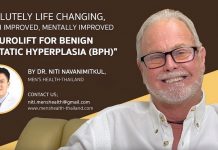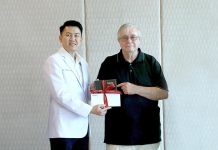We cannot live without food and water. However, it may interest you to know that you can do without food for 14 days, but you can only do without water for seven. So it looks as if water is twice as important as food. And while on interesting facts, a cockroach can live for seven days without a head. But I am not suggesting that we behead the nasty little creatures to verify this.
What we eat has fascinated us for centuries. We have made rituals and even fetishes out of eating and drinking, and the oldest gourmet group in the world, the Chaîne des Rôtisseurs, is still going and began in 1248 AD. That’s a long lunch!
These days, with our tentative forays into ‘real’ science, our dietary habits have also been scrutinized plus the many claims made for modifying the kind of food we eat and what we drink. This in turn, has produced legions of people who swear by various foods which will cure everything from falling hair to falling arches (or even falling stock markets)!
Of course, it is very difficult to ‘prove’ that by taking desiccated kangaroo droppings or similar items, that ‘something’ (usually cancer) will not happen. Even more outrageous are the claims that some herb, poppy or whatnot can actually ‘cure’ cancers. Is it all just poppycock?
The usual ‘proof’ is that someone’s great aunt lived to be 103 by eating two gladioli every day. However, to be able to prove these claims needs medical science to look at a large group, or population, and compare the cancer experience with another similar large group or population. Ideally, the two groups are matched for age/sex/ethnicity/working environment, location, etc. You get no worthwhile results comparing Welsh coalminers with urban Africans, for example, to go to extremes.
Finally, some results of a 15+ year study in Australia have been presented at the CSIRO Prospects for Cancer Prevention Symposium. The findings emerged from the Cancer Council’s Melbourne Collaborative Cohort Study, an ongoing research project involving 42,000 Australians who have been monitored since 1990.
Looking at the dietary habits and the cancer connection, Dr Peter Clifton, director of the CSIRO’’s Nutrition Clinic, said there was “zero evidence” that eating fruit and vegetables could protect against cancer. The nutritionists and the healthy eating proponents were shattered. However, this to me is a much more compelling argument than something that comes from folklore, or the lady next door who is now eating three gladioli and swears by it.
What the survey did show was that the three prime risk factors as far as predicting cancers were concerned were identified as obesity, drinking too much alcohol and smoking.
More than that, staying within a healthy body weight range was found to be more important than following particular nutritional guidelines. This means a thin person who does not eat enough fruit and vegetables would have a lower risk of developing cancer than someone who is overweight but eats the recommended daily amount of fruit and five colors of vegetables (and a couple of gladioli for good luck).
Professor Dallas English, of the Cancer Council of Victoria, told the symposium that despite decades of research, there was no convincing evidence on how modifying one’s diet would reduce the risk of cancer.
“The most important thing about diet is limiting energy (kilojoule) intake so people don’t become overweight or obese, because this has emerged as a risk factor for a number of cancers, including breast, prostate, bowel and endometrial (uterus),” he said.
The link between eating red meat and bowel cancer was “weak” and the Cancer Council supported guidelines advising people to eat red meat three or four times a week, Professor English said.
With obesity on the up and up, perhaps it is time you looked at your diet too. So there you are – get down to a healthy weight and exercise regularly, drink alcohol in moderation only (Australians do not know what “moderation” means) and stop smoking. In this way you will lower your chances of heart disease and cancer.
Goodness me, you might even outlive me! (But having heard you can’t take it with you, I’ve decided I’m not going!)




